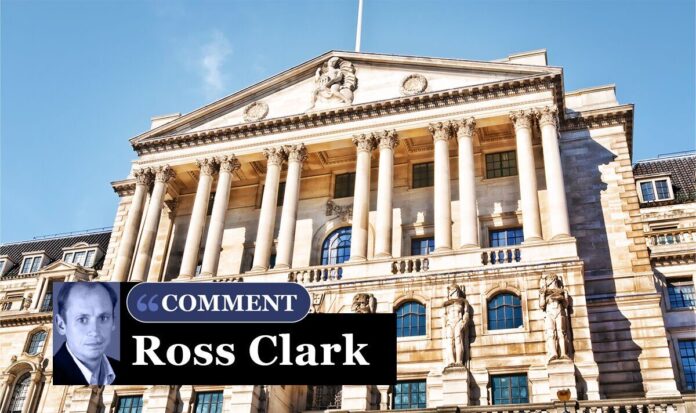RATE RISE: Savers will finally get a higher return on their money after years in the wilderness (Image: GETTY)This will make life more difficult for homebuyers, they warned. Estate agency Savills predicted a 10 per cent fall in house prices next year. I’m glad I’m not buying my first home now, but the world is not made up entirely of homebuyers, and there will be many who will be relieved at the news of an interest rate rise: savers, who have had watch as their money is eaten away by inflation. For years, savers have been compensated with derisory rates of interest – and now, with inflation at over 10 per cent, it is beginning to bite.Savers are the forgotten victims of the economic crisis. When inflation was last at this level, in the early 1980s, interest rates were themselves well over 10 per cent. The Bank of England’s base rate hit 15 per cent in 1981. That made life miserable for homebuyers, but it meant that savers could at least protect their money against inflation simply by putting it into a building society savings account.Not any more. Even after yesterday’s rise the Bank of England’s base rate is just three per cent. It is extremely difficult to obtain more than two per cent in a savings account – unless you are prepared to lock your money away for months or years. Savings are still being rapidly eroded in real terms.Thanks to inflation, ordinary people are effectively having their savings raided to bail out borrowers. If you have borrowed heavily, high inflation is on your side. If you owe £10,000 now, and don’t pay off any of your debt, you will still owe £10,000 in a decade’s time – even if the real value of that debt has halved. Given the size of the Government’s debts, it is little wonder that Chancellors have been happy to tolerate a bit of inflation.But inflation brings a very big fairness problem. People who save money for a rainy day ought to be encouraged. They are more likely to be able to support themselves through troubled economic times, and less likely to end up on benefits. Yet instead of being encouraged they are being punished.Remarkably, in the 314 years from 1694 to 2008 the Bank of England base rate never once fell below two per cent. Yet from 2008 until earlier this year the rate never climbed above one per cent. Even when the economy recovered from the 2008/09 crash rates were kept at record lows.The result is that reckless borrowing was encouraged. On top of that, the Bank of England was creating vast amounts of money through ‘quantitative easing’ – which involves buying up government bonds, and is just a polite name for printing money. We had a bubble in share valuations and property prices. Now this bubble is finally bursting, it is causing huge damage to the economy.Markets ought to have been reassured by yesterday’s 0.75 per cent rise in interest rates. It had been expected, and mirrors the interest rate rise announced by the US Federal Reserve – the equivalent of the Bank of England – on Wednesday. Yet the pound still fell sharply.It is not as dramatic as the reaction to Kwasi Kwarteng’s botched mini-Budget in September, but investors are still yet to be convinced that the Bank of England has inflation under control.How much better a position would we now be in if the Bank had followed a more conservative monetary policy over the past decade. We wouldn’t have so many over-borrowed households and businesses – and we wouldn’t be staring into the barrel of a very deep recession.After the 2008/09 financial crisis we were told it would never be allowed to happen again. The rules would be changed to ensure that lenders and borrowers acted with responsibility.Yet no sooner was the danger over than things began to slip. Reckless banking practices returned. Indeed, they were amplified by ultra-low interest rates. Just last month several large pension funds came close to collapse as bond yields rose rapidly in response to the mini-Budget. The Bank of England had to intervene to prevent people losing their pension pots.As the US investor Warren Buffett once said, it isn’t until the tide goes out that you discover who has been swimming naked. Now, the economic tide is receding quickly, and those who have over-borrowed are in a lot of trouble. But at least savers – backbone of the banking system – are receiving just a little higher return on their savings. They deserve it after a decade with a raw deal.


